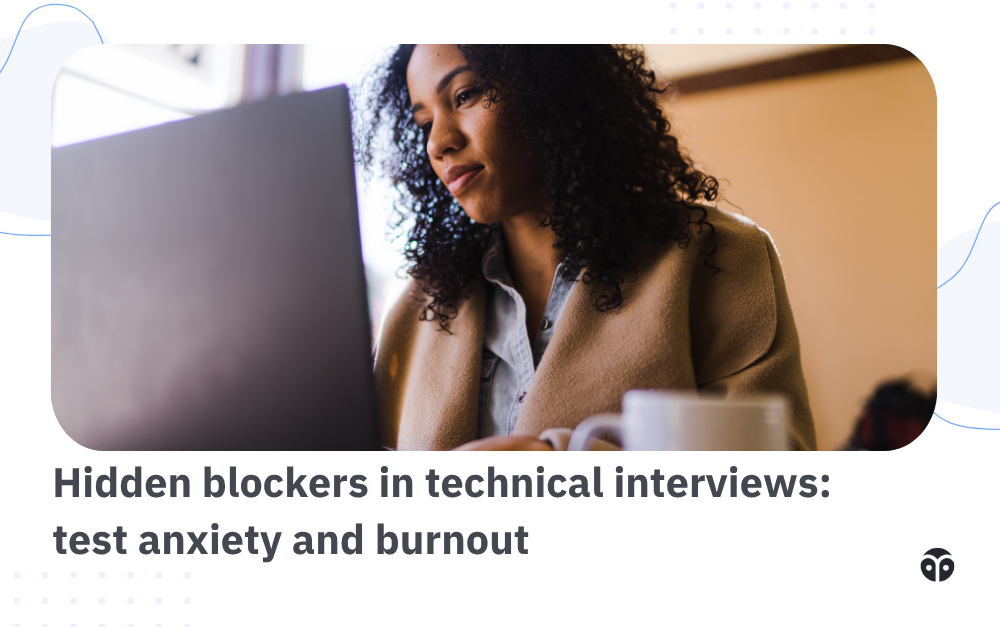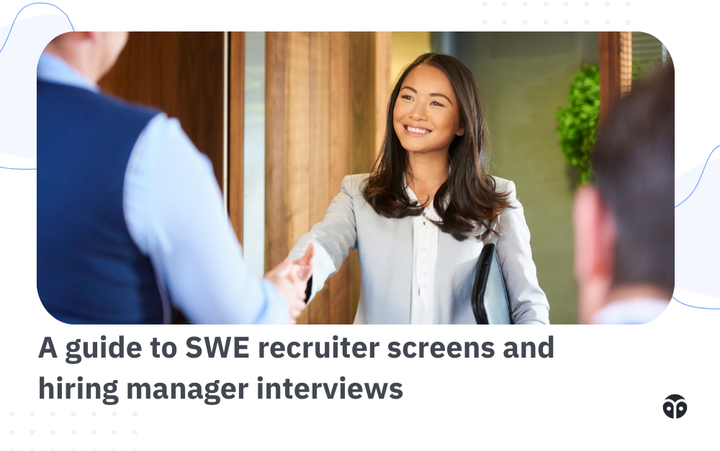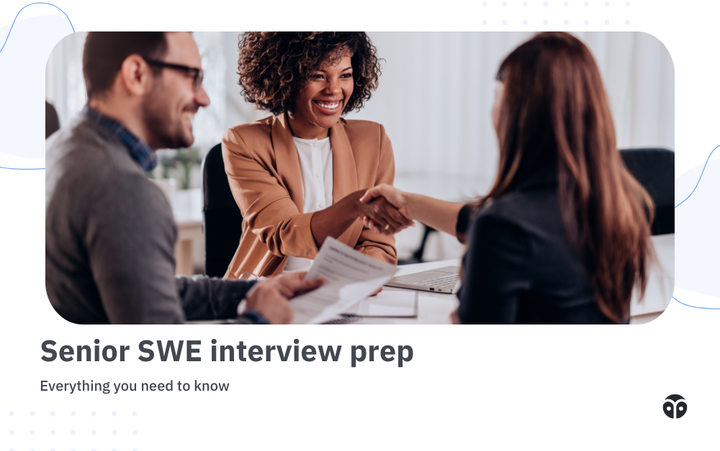The hidden blockers in technical interviews: test anxiety and burnout
Even great engineers stumble under stress. Learn how balance, structure, and mindset can turn interview anxiety into clarity.

Every engineer knows the feeling: you sit down for a technical interview and suddenly your brain goes quiet. You know the concepts. You’ve seen this problem before. But the words and logic won’t line up.
It doesn’t just happen to inexperienced candidates. Engineers with years (even decades) of real-world expertise struggle with this, too. What’s getting in the way isn’t skill. It’s what happens when anxiety, exhaustion, and pressure collide.
Technical interviews are designed to compress complex reasoning into 45 minutes of high stakes and bright lights. And in that setting, even great engineers can stumble.
How nerves rewrite ability
In a 45-minute interview, anxiety can turn thoughtful reasoning into silence, structure into chaos, and confidence into second-guessing.
We see familiar patterns in interviews across levels:
- The freeze: long pauses where the candidate seems lost but is simply overwhelmed.
- The rush: frantic coding without explanation, skipping the reasoning that interviewers actually want to hear.
- The fixation: chasing one “right” answer instead of adapting to feedback or changing direction.
It’s rarely about knowledge. It’s an issue with performance under pressure. The interview itself triggers a stress response that blocks access to what you already know.
When preparation turns into burnout
Faced with nerves, many engineers do what engineers do best: they problem-solve. They practice harder. They grind through hundreds of problems, treat interviews like tests to memorize, and aim to eliminate every possible unknown.
But interviews reward clarity, not volume.
Grinding through hundreds of problems can lead to:
- Exhaustion before the first real interview question.
- Perfectionism, where every small mistake feels fatal.
- Fragile confidence that crumbles when a new problem shows up.
Preparation is supposed to build resilience. Burnout does the opposite.
Why balance beats intensity
The engineers who perform best aren’t the ones who’ve solved every problem on LeetCode. They’re the ones who’ve built habits they can fall back on when things get hard.
Balanced prep is less about volume and more about rhythm:
- Practicing structure until problem breakdown feels automatic.
- Speaking thoughts aloud until communication feels natural.
- Working consistently, not constantly — the cognitive equivalent of training smart, not running yourself into the ground.
Interview preparation shares more similarities with endurance training than with exam preparation. You build capacity gradually, rest deliberately, and trust the systems you’ve built when it’s time to perform.
Strategies that actually work
The engineers who stay composed tend to share similar habits. Not shortcuts — systems.
1. Treat practice like real work.
Pair with others. Explain your reasoning. Treat each problem as collaboration, not competition. It reminds your brain that interviews are conversations, not performances.
2. Use the same structure everywhere.
Use the same process every time, like Formation’s Engineering Method. When anxiety spikes, structure in that process brings you back to something familiar.
3. Protect your pacing.
Short, steady practice beats marathon sessions. Cap your daily prep. Take full days off. The night before an interview, close the laptop. Rest sharpens focus more than one more problem ever will.
4. Take care of your hardware.
Brains run on bodies. Sleep, movement, and nutrition are important for performance. Anxiety spikes faster and fades slower when the basics are neglected.
5. Reframe the purpose.
Interviews aren’t exams to ace. The goal isn’t to prove you never get stuck — it’s to show how you think when you do.
Rethinking what “readiness” looks like
The goal isn’t to eliminate nerves. It’s to work with them.
Great engineers treat interviews like what they really are: short windows to show how they think, communicate, and collaborate under pressure. Preparation is about building habits that make that possible and protecting the energy that fuels them.
Get holistic interview prep with Formation
The Formation Fellowship gives mid-level and senior engineering job seekers everything they need to land their dream roles — including personalized skill brush-ups, resume help, unlimited mock interviews with experienced software engineers and hiring managers from top-tier tech companies, career and negotiation support, and more.
If you’re having trouble navigating your job search on your own, apply here and get unconditional support from a team of engineering mentors, technical recruiters, career coaches, and more.



